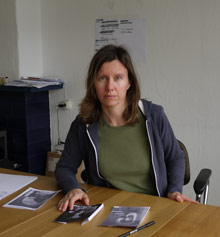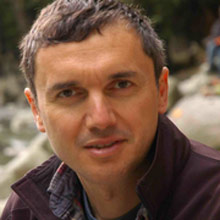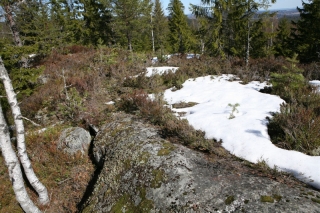Mineral Rights. Site Exploration: Biella Guide Tours
Mineral Rights.
Site prospection, what lies beneath and who owns it.
Who owns the globe’s sub-surface? What lies there, and how is it instrumentalised by private interests? Mineral Rights is a body of research and series of ongoing artworks. Tracing seams of iron ore, pools of oil, and deposits of alloys, Almarcegui pursues mineral rights across several countries, variously recording her attempts and failures. Almarcegui tries to acquire underneath, not to extract minerals but to highlight how the territory is shaped at a geological level, and how it is broken down for exploitation. Looking back on the history of mining and land ownership, the project investigates how rulers of different countries oppose the idea that individual citizens acquire rights to mineral resources.
As part of a probing, and often humorous, investigation into the intersection between land rights, ownership, and matter she shares a new stage in her research that explores the mineral rights beneath Biella, in conversation with the workshop participants and experts in the field. The workshop will analyse the situation around Biella in depth. Various forms of territorial representation are investigated alongside this process.
Another section of the workshop will focus on discovering other interesting areas of transformation in the city while encouraging fieldwork, site investigation and the finding of other different challenges in the territory. Grounds that are going though a process of transformation will be identified, as empty lots or wastelands. Places which, after loosing their original function, remain useless and open to all sorts of possibilities. To look at them and understand what happens in them, is a way to question how the city is designed, and a way to know more about the future of the city space, its wishes and its failures.
SCHEDULE
May 9th
morning
Guided tour to Cittadellarte (Curated by Elena Rosina), including the Pistoletto, Arte Povera collections and temporary exhibitions.
Introduction to the Theorem of Trinamics, the symbol of the Third Paradise and the concept of Demopraxy.
afternoon
Introduction of workshop.
Mineral Rights project in other country’s: attemps and failures in Germany, Spain and the Netherlands. How it worked out well in Norway and Austria.
Working plan to find out what is the situation in Italy, Piedmont and Biella.
Open questions on other territory’s in Biella.
Participants presentations.
May 10th
morning
Talk with urban expert in Biella.
Field work: Site prospection; Biella site investigation.
afternoon
Field work: Site prospection; Biella site investigation.
May 11th
morning
Meetings with guest geologist Marco Giardino.
Questions to him on how to move on with the project.
afternoon
Presentation of what we know and collective decision on how to find more information.
Advance in research on sites.
May 12st
morning
Establishing contacts.
Proceding to submit applications.
Further research on sites.
afternoon
Further research on sites.
Resume on what we know about the places we choose.
List of the most interesting sites in order to organise projects’ presentations.
May 13th
Final guide tours visiting all the sites after making a list of interesting locations.
Presentations in each location with the found information and wanted narration.
REFERENCES
The mentor will prepare a reader for participants with key texts some of which will be discussed during the week.
J.G. Ballard, Concrete Island, Jonathan Cape, 1974
G. Perec, Tentative d’épuisement d’un lieu parisien, Christian Bourgois, 1982
R. Smithson, “A walk though the Monuments of Passaic”, in The Writings of Robert Smithson, essays with illustrations edited by Nancy Holt, New York University Press, 1979
H. D. Thoreau, Walden, Ticknor and Fields, 1854
R. Walser, The walk, Serpents Tail, 1993

BIOGRAPHY
The work of Lara Almarcegui aims to fully understand the dynamics of a chosen location. Her projects function as guides to neglected or overlooked sites, to places where change is omnipresent. She investigates and engages with such spaces, confronting the public with unknown aspects of a seemingly familiar terrain and illustrating processes of urban transformation.
In 2013, Lara blew the public minds as Spain’s representative to the “55th Venice Biennial”, where she filled the interior of the pavillion with massive piles of building ruble similar to those used by workers during its construction. Working at a time of widespread urban renewal in Europe, she has remained a champion of overlooked, forgotten sites — creating guides for the cities’ wastelands and even instigating their legal protection.
Projects, positions, press (selection):
http://www.wdw.nl/event/mineral-rights-what-lies-beneath-rotterdam-and-who-owns-it/
http://www.edbprojects.com/2015/06/exhibitions/archive/050915-241015-lara-almarcegui/
http://2015.steirischerherbst.at/english/Programme/herbst-Academy
http://www.kunstbulletin.ch/eingang_besucher/dsp_frame.cfm?token_session_id=16011623051928P&token_session_benutzer_id=anonymous&a=1505281509061BY-1&p=&i=&e=&abo=&schenken=&shop=&anzeigen=
http://www.e-flux.com/announcements/lara-almarcegui-3/

GUEST
Marco Giardino is professor of Applied Geomorphology at the University of Turin, member of the Italian Glaciology Committee, coordinator of the European project geoNatHaz for EU-Canada university exchange. Specialized in the study of the Alps, and in particular of their recent evolution and natural hazards due to climate and tectonic conditions; he also analyzes Geodiversity and Geoheritage to develop effective strategies of geoconservation. He is author of hundreds of scientific papers and of popular texts and multimedia products to rise sensitivity of the general public on issues of Geosciences and environmental education. He is representative of the Erasmus programs for the school of Science.
The residency fee includes accomodation and half-board.
